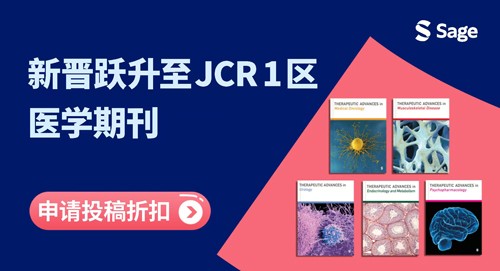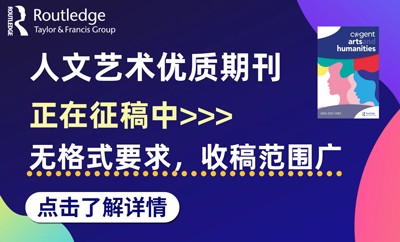-
The affordances of Artificial Intelligence (AI) and ethical considerations across the instruction cycle: A systematic review of AI in online higher education Internet High. Educ. (IF 6.8) Pub Date : 2025-07-19 Min Zhuang, Siyu Long, Florence Martin, Daniela Castellanos-Reyes
As Artificial Intelligence (AI) advances, discussions regarding its potential in education have attracted significant attention. This systematic review synthesizes AI affordances in online higher education, particularly identifying various ways AI is used throughout the online instruction cycle. We analyzed fifty-five studies focusing on publication trends, research methodology and quality, AI affordances
-
Empowering international PhD students: Generative AI, Ubuntu, and the decolonisation of academic communication Internet High. Educ. (IF 6.8) Pub Date : 2025-07-18 Lynette Pretorius, Huy-Hoang Huynh, Anak Agung Ayu Redi Pudyanti, Ziqi Li, Abdul Qawi Noori, Zhiheng Zhou
Generative AI (GenAI) provides distinct affordances that contribute meaningfully to learning. However, there are also several challenges, most notably ethical considerations. While much of the current research on GenAI in academia focuses on technical capabilities or ethical concerns, few studies have examined how GenAI can be leveraged to promote equity and inclusivity, particularly in academic communication
-
The GenAI divide among university students: A call for action Internet High. Educ. (IF 6.8) Pub Date : 2025-07-09 Karley Beckman, Tiffani Apps, Sarah Katherine Howard, Claire Rogerson, Ann Rogerson, Jo Tondeur
The rapid pace of technological change with generative artificial intelligence is accelerating much faster than our capacity to understand and regulate it. Higher education institutions have been firmly focused on the impacts of this innovation on academic integrity while grappling with unknown longer-term impacts on students' academic study and future work. This mixed method study aims to capture
-
Parallel empathy or reactive empathy? The role of emotional support provided by affective pedagogical agent in online learning Internet High. Educ. (IF 6.8) Pub Date : 2025-07-01 Yanqing Wang, Shaoying Gong, Yang Cao, Ying Liu
To increase human-computer interaction and motivate university students' online learning, this study investigated the effects of affective pedagogical agent (PA) providing parallel empathy and reactive empathy in an online learning scenario. In a 2 (Parallel empathy: yes vs. no) × 2 (Reactive empathy: yes vs. no) between-subjects design, 122 university students learned 10 psychological concepts about
-
Maximizing effectiveness of AI-generated instructors through human-like behavior and dynamic visual cues in instructional videos: Evidence from an eye-tracking study Internet High. Educ. (IF 6.8) Pub Date : 2025-07-01 Tao Xu, Qian Chen, Zhiwei Zhang, Bingyu Dong, Hui Zhang, Jie Bai, Yun Zhou
The rapid advancement of Artificial Intelligence Generated Content (AIGC) has revolutionized the production of instructional videos and lectures in MOOCs, opening a new chapter in their use for education. This technology enables the generation of talking instructors from text and images or clips of real people. However, the impact of behavioral fidelity and visual cues provided by these generated instructors
-
Enhancing online college students' self-regulated learning and performance through self-assessments and commitment strategies Internet High. Educ. (IF 6.8) Pub Date : 2025-06-18 Kun Huang, Anita Lee-Post
This study examines the impact of a combined self-assessment and commitment strategy intervention on college students' self-regulated learning (SRL) and academic performance in asynchronous online learning. Using an ex post facto control design, we compared students' performance and behavioral analytics across three course units in two consecutive years of a large online college course. Compared to
-
Temporal structuring in asynchronous discussions: Designing for collaborative learning in online university courses Internet High. Educ. (IF 6.8) Pub Date : 2025-06-15 Arita L. Liu, Philip H. Winne, John C. Nesbit
Asynchronous online discussions (AOD) offer pedagogical advantages as a social learning tool, but their success largely depends on students' motivated participation and sustained engagement. Recent research highlights the potential of leveraging temporal data to understand discussion dynamics and inform instructional strategies. However, the role of contextual factors in analyzing temporal data has
-
Changes in online engagement at the within-person level, profiles, dynamics and association with achievement Internet High. Educ. (IF 6.8) Pub Date : 2025-06-15 Mohammed Saqr, Sonsoles López-Pernas
While the dominant population-based research is immensely useful in revealing the general trends, it falls short of capturing the intraindividual –or within-person – changes on the individual level. Capturing the individualized processes helps create personalized interventions and advance our understanding of the person in which the learning process takes place. This study aimed at modeling the within-person
-
Evaluating the impact of online course development and teaching certificate academy on university faculty teaching practices through student learning experiences and faculty perceptions Internet High. Educ. (IF 6.8) Pub Date : 2025-06-02 Nedim Slijepcevic, Wanju Huang
This study evaluates the effectiveness of a faculty professional development (PD) course titled – Online Course Development and Teaching Certificate Academy (OTA), which focuses on the technology, pedagogy, and instructional design concepts essential for transitioning to online classrooms. OTA follows the Community of Inquiry principles by integrating social, teaching, and cognitive presences throughout
-
AI in higher education: A bibliometric analysis, synthesis, and a critique of research Internet High. Educ. (IF 6.8) Pub Date : 2025-06-01 Ahmed Lachheb, Javier Leung, Victoria Abramenka-Lachheb, Rajagopal Sankaranarayanan
To better characterize and understand AI in higher education and its role in relation to educational disparities and inclusivity, this paper presents a comprehensive bibliometric assessment of research on AI in higher education. Using quantitative topic modeling and qualitative analysis methods, this study describes: (1) the research landscape of AI in higher education and (2) the common topics of
-
Promoting inclusive practices with emerging technologies in higher education: Faculty professional development through blended-learning Internet High. Educ. (IF 6.8) Pub Date : 2025-05-31 Anabel Moriña, Víctor H. Perera
University institutions face the challenge of training faculty in inclusive digital skills to provide quality education for all. This paper presents a study that designed, developed, and evaluated a blended-learning training programme for faculty in Spain, focusing on emerging technologies from an inclusive perspective. A qualitative methodology was employed, incorporating a case study approach with
-
The interplay among digital distraction, self-regulation of learning tendencies, and motivational influences: A transnational investigation Internet High. Educ. (IF 6.8) Pub Date : 2025-05-30 Abraham E. Flanigan, Anna C. Brady, Mete Akcaoglu, Yan Dai, Sungjun Won, Bridget K. Daleiden, Kendall Hartley
College students' misuse of mobile devices during class for off-task purposes is a global issue that harms learning. While prior studies examined device misuse frequency within individual countries, no known studies have directly compared transnational differences in this behavior, leaving little known about whether crosscultural differences influence this behavior. This study investigates whether
-
Adaptive online course design: Analysis of changes in student behaviour throughout the degree lifecycle Internet High. Educ. (IF 6.8) Pub Date : 2025-05-10 Gediminas Lipnickas, Joanne Harris, Bora Qesja, Svetlana De Vos
With the growth of the online higher education sector, educational institutions are increasingly creating asynchronous online courses resembling Massive Open Online Courses (MOOCs), characterised by reduced interpersonal interactions. While these courses offer higher flexibility for students, much remains unknown about how the design of these courses impacts student behaviour and performance. This
-
Beyond hype: Is ChatGPT-generated content effective in class preparation among academic instructors? Internet High. Educ. (IF 6.8) Pub Date : 2025-04-23 Saeed Awadh Bin-Nashwan, Mohamed Bouteraa, Abderrahim Benlahcene, Mouad Sadallah
Although the adoption of AI-generated content, such as ChatGPT, has extensively transformed traditional teaching and learning paradigms, the critical question of the effectiveness of ChatGPT content in lesson preparation remains largely unanswered. Therefore, this research aims to understand the determinants that drive or hinder this effectiveness, which is crucial to realizing the full potential of
-
Empowering ChatGPT adoption in higher education: A comprehensive analysis of university students' intention to adopt artificial intelligence using self-determination and technology-to-performance chain theories Internet High. Educ. (IF 6.8) Pub Date : 2025-03-30 Yaser Hasan Al-Mamary, Aliyu Alhaji Abubakar
The integration of artificial intelligence (AI), particularly ChatGPT, in higher education is rapidly expanding, offering new avenues for enhancing the learning experience. Despite its potential, the adoption of ChatGPT remains in need of further study, especially in regions like Saudi Arabia. Previous studies have focused on general e-learning tools, but more research needs to examine the specific
-
The use of generative AI by students with disabilities in higher education Internet High. Educ. (IF 6.8) Pub Date : 2025-03-13 Xin Zhao, Andrew Cox, Xuanning Chen
The use of generative AI is controversial in education largely because of its potential impact on academic integrity. Yet some scholars have suggested it could be particularly beneficial for students with disabilities. To date there has been no empirical research to discover how these students use generative AI in academic writing. Informed by a prior interview study and AI-literacy model, we surveyed
-
What should I know? Analysing behaviour and feedback from student use of a virtual assistant to share information about disabilities Internet High. Educ. (IF 6.8) Pub Date : 2025-02-21 Tim Coughlan, Francisco Iniesto
Administrative burden is a recognised cause of inequities for disabled students. Experiences of sharing information about disabilities and arranging adjustments can be demoralising and present barriers to success. To explore how Artificial Intelligence technologies could improve this situation, a virtual assistant (VA) was iteratively developed and deployed to support the initial steps of the process
-
Exploring human and AI collaboration in inclusive STEM teacher training: A synergistic approach based on self-determination theory Internet High. Educ. (IF 6.8) Pub Date : 2025-02-21 Tingting Li, Zehui Zhan, Yu Ji, Tongde Li
Inclusive STEM teacher training plays a critical role in shaping the future of STEM teaching practices and improving educational outcomes for all students, particularly those from marginalized and underrepresented backgrounds. This study investigates the inclusive collaborative learning framework for enhancing STEM teaching among student teachers, focusing on interpersonal and human-machine (generative
-
Investigating perceived fairness of AI prediction system for math learning: A mixed-methods study with college students Internet High. Educ. (IF 6.8) Pub Date : 2025-02-14 Yukyeong Song, Chenglu Li, Wanli Xing, Bailing Lyu, Wangda Zhu
Entities such as governments and universities have begun using AI for algorithmic decision-making that impacts people's lives. Despite their known benefits, such as efficiency, the public has raised concerns about the fairness of AI's decision-making. Here, the concept of perceived fairness, defined as people's emotional, cognitive, and behavioral responses toward the justice of the AI system, has
-
Transforming online learning research: Leveraging GPT large language models for automated content analysis of cognitive presence Internet High. Educ. (IF 6.8) Pub Date : 2025-02-12 Daniela Castellanos-Reyes, Larisa Olesova, Ayesha Sadaf
The last two decades of online learning research vastly flourished by examining discussion board text data through content analysis based on constructs like cognitive presence (CP) with the Practical Inquiry Model (PIM). The PIM sets a footprint for how cognitive development unfolds in collaborative inquiry in online learning experiences. Ironically, content analysis is a resource-intensive endeavor
-
Awareness, perception, and adoption of ChatGPT in African HEIs: A multi-dimensional analysis Internet High. Educ. (IF 6.8) Pub Date : 2025-02-06 Olugbenga Ayo Ojubanire, Sunday Adewale Olaleye, Mohamed Amine Marhraoui, Mesiet William Kamihanda, Oluwatosin Ifedayo Oke, Oluwaseun Abigail Ojubanire
The adoption of artificial intelligence (AI), particularly Large Language Models like ChatGPT, has gained significant traction in the education sector, offering numerous benefits for students and educators alike. This study focuses on the triggers and drivers of ChatGPT adoption within African higher education institutions (HEIs). Utilizing the Technology Acceptance Model (TAM) and the Diffusion of
-
Humanizing college online instruction: The effects of professional development on faculty perceptions and instructional practices Internet High. Educ. (IF 6.8) Pub Date : 2025-02-05 Di Xu, Yujia Liu, Zhiling Meng Shea, Kimberly Vincent-Layton, Jeffrey White, Michelle Pacansky-Brock
The rapid growth of online learning has raised concerns about quality and equity in virtual education. This study introduces the Humanizing Online STEM Academy, a six-week professional development program designed specifically to promote humanizing and inclusive teaching within STEM college online courses. We document in detail the Academy's design and instructional approach, and examine its impact
-
Investigating the relationship between collaborative design, online learning and educator integrated professional development Internet High. Educ. (IF 6.8) Pub Date : 2025-02-01 Vasiliki Papageorgiou, Edgar Meyer, Iro Ntonia
The global expansion of university-level online programmes has heightened the demand for educators to design and facilitate meaningful learning experiences. However, many educators lack the necessary expertise and experience, highlighting the urgency for contextually relevant professional development opportunities. This paper investigates the collaborative design processes of novice online educators
-
A systematic literature review on the application of generative artificial intelligence (GAI) in teaching within higher education: Instructional contexts, process, and strategies Internet High. Educ. (IF 6.8) Pub Date : 2025-01-30 Peijun Wang, Yuhui Jing, Shusheng Shen
Represented by ChatGPT, Generative Artificial Intelligence (GAI) is revolutionizing the field of education. Despite a series of related studies and reviews around GAI, existing reviews predominantly focus on macro-level discussions covering overall development trends, core issues, opportunities and risks. There has been a lack of systematic reviews from a meso-level perspective examining the application
-
Virtual avoidance: Examining STEM students' lower interest in online courses Internet High. Educ. (IF 6.8) Pub Date : 2025-01-28 Miranda M. McIntyre, Geoffrey Cui, Yunfei Hou
Online education is growing in popularity, yet online courses in science, technology, engineering, and mathematics (STEM) experience lower student satisfaction and higher attrition compared to non-STEM courses. This study explores differences in online course perceptions between STEM and non-STEM students and how these perceptions influence their intentions to enroll in future online courses. A sample
-
Digital diaries supporting self-regulated learning during in-person and online transitions Internet High. Educ. (IF 6.8) Pub Date : 2025-01-20 Zui Cheng, Danyang Zhang, Shan Peng, Xinyi Xiong, Qixiu Xiong
The transition between online and in-person learning has become a recurring challenge in contemporary education, highlighting the need for effective strategies to support students' self-regulated learning (SRL) during these shifts. This study examines the impact of digital diaries on undergraduate students' perceived SRL skills during a critical transition from in-person to online learning. Using a
-
Does professional development for online instruction improve student course outcomes? Internet High. Educ. (IF 6.8) Pub Date : 2025-01-19 Xuehan Zhou, Qiujie Li, Di Xu
With the fast expansion of online learning in higher education, institutions have increasingly offered and mandated faculty professional development (PD) programs focused on online instruction. However, the extent to which these PD programs indeed lead to improved students' online course performance remains largely unknown. This paper used a rigorous quasi-experimental approach to estimate the impact
-
Community of inquiry: A bridge linking motivation and self-regulation to satisfaction with E-learning Internet High. Educ. (IF 6.8) Pub Date : 2025-01-03 Mohammadreza Farrokhnia, Abbas Taghizade, Roshan Ahmadi, Pantelis M. Papadopoulos, Omid Noroozi
Learner satisfaction is a key metric that encapsulates the overall e-learning experience. While numerous studies have explored the “what” (i.e., the factors that predict satisfaction), there has been less focus on the “how” (i.e., the mechanisms through which these factors are associated to satisfaction). This study seeks to address this gap by elucidating how two key individual factors, motivation
-
Teaching via LLM-enhanced simulations: Authenticity and barriers to suspension of disbelief Internet High. Educ. (IF 6.8) Pub Date : 2024-12-10 Longwei Zheng, Fei Jiang, Xiaoqing Gu, Yuanyuan Li, Gong Wang, Haomin Zhang
As an innovative method in professional training, simulation-based learning (SBL) has been introduced into teacher education, providing pre-service teacher candidates with experiential learning opportunities. This study explores the efficacy of SBL using large language models (LLMs) to enhance teacher training, focusing on learners' suspension of disbelief (SoD). As a highly advanced form of generative
-
Information flow solipsism in canvas: An exploration of student privacy awareness Internet High. Educ. (IF 6.8) Pub Date : 2024-11-29 Meghan L. Dowell, Spencer P. Greenhalgh
The proliferation of learning analytics (LA) in higher education has relied on data from learning management systems (LMS) like Canvas and Blackboard. Despite widespread LMS usage, students often lack clarity on what specific data is collected and who has access to it. This study explores undergraduate students' understanding of data collection practices within the Canvas LMS. We analyzed survey responses
-
Scaling up online professional development through institution-initiated blended learning programs in higher education Internet High. Educ. (IF 6.8) Pub Date : 2024-11-28 Jingjing Zhang, Yicheng Huang, Fati Wu, Wei Kan, Xudong Zhu
The impact of Covid-19 has significantly accelerated the digital transformation in higher education worldwide. This study investigates how digital transformation changes the instructional design and implementation of large-scale blended learning programs for better learner experiences. It emphasizes the significance of diverse stakeholders' engagement in institution-initiated blended programs to promote
-
Promoting university students' situational engagement in online learning for climate education Internet High. Educ. (IF 6.8) Pub Date : 2024-11-19 Elisa Vilhunen, Veli-Matti Vesterinen, Mikko Äijälä, Janne Salovaara, Joula Siponen, Jari Lavonen, Katariina Salmela-Aro, Laura Riuttanen
Disengagement in online learning is known to pose a risk to student learning and wellbeing. In this paper, we first introduce the development and implementation process of a set of online university climate education courses aimed at enhancing student situational engagement through diverse learning activities. Second, engagement (conceptualized here as the co-occurrence of interest, skill, and challenge
-
Enhancing student engagement in online collaborative writing through a generative AI-based conversational agent Internet High. Educ. (IF 6.8) Pub Date : 2024-11-17 Wanqing Hu, Jirong Tian, Yanyan Li
Promoting student engagement in online collaborative writing (OCW) activities has been a critical concern for educators. Previous research has attempted to design conversational agents (CAs) utilizing retrieval-based models to engage students in collaborative learning. However, few studies have yet explored the design of CAs for OCW based on generative AI (GAI) models. Researchers are calling for investigations
-
The paradox of self-efficacy and technological dependence: Unraveling generative AI's impact on university students' task completion Internet High. Educ. (IF 6.8) Pub Date : 2024-11-14 Ling Zhang, Junzhou Xu
In the era of proliferating artificial intelligence (AI) technology, generative AI is reshaping educational landscapes, prompting a critical examination of its influence on students' learning processes and their self-efficacy amid concerns over growing technological dependence. This study investigates the nuanced relationship between generative AI use and university students' self-efficacy and technological
-
Prior online learning experiences as incidental professional development: A cross-sectional survey of online instructor beliefs and strategies Internet High. Educ. (IF 6.8) Pub Date : 2024-11-05 Kerry J. Burner, Vanessa P. Dennen, Sihan Jian
This study examines how prior experiences as online learners prepare instructors for being online instructors through incidental learning. The study is driven by four research questions, inquiring whether instructors draw upon that experience when teaching online and whether instructors with this online learning experience differ from other online instructors regarding teaching strategies, help-seeking
-
Experiential learning through simulations in fully online asynchronous courses: Exploring the role of self-debriefing Internet High. Educ. (IF 6.8) Pub Date : 2024-10-26 David De Jong, Sara Dexter
Online preparation of professionals is increasing in higher education, which in educational leadership preparation programs raises the need for a means to provide authentic simulations of leadership experiences and help aspirants learn from them. This study presents a content analysis of 826 responses from 59 different school leadership students who, following each of the 14 simulations they experienced
-
Exploring the influential factors of online professional learning completion of college teachers from the Global South in an international training program Internet High. Educ. (IF 6.8) Pub Date : 2024-08-14 Chao Wang, Xiao Hu
Online courses emerged as an important mode for large-scale cross-national teachers' professional learning. However, with most previous research on teacher online professional learning (TOPL) focusing on resource-rich and technology-advanced regions, little attention has been paid to the factors influencing the online learning completion of college teachers in Global South contexts. This study aimed
-
Exploring learner satisfaction and the effectiveness of microlearning in higher education Internet High. Educ. (IF 6.8) Pub Date : 2024-05-23 Albert Rof, Andrea Bikfalvi, Pilar Marques
The rise of microlearning both for professional training and in the field of education seems unstoppable. Nonetheless, there is a lack of evidence of its learning effectiveness and student satisfaction. The purpose of this paper is to uncover these two aspects of microlearning when taking part in a business education program. Its originality is that it analyses in depth a fast-growing EdTech startup
-
Self-presentation and social networking online: The professional identity of PhD students in HCI Internet High. Educ. (IF 6.8) Pub Date : 2024-04-26 Chuhao Wu, John M. Carroll
The number of research doctorate degrees awarded by US institutions per year has increased steadily over the decades. However, the academic job market is also becoming more competitive, and doctoral candidates often face difficulties in developing a professional identity and making career-related decisions. In this study, we investigated PhD students' professional identity formation with regard to
-
Hey ChatGPT, give me a title for a paper about degree apathy and student use of AI for assignment writing Internet High. Educ. (IF 6.8) Pub Date : 2024-04-16 David Playfoot, Martyn Quigley, Andrew G. Thomas
ChatGPT could allow students to plagiarize the content of their coursework with little risk of detection. Little is known about undergraduate willingness to use AI tools. In this study, psychology undergraduates ( = 160) from the United Kingdom, indicated their willingness to use, and history of using, ChatGPT to write university assignments. Almost a third (32%) indicated that they would use such
-
Why do students disengage from online courses? Internet High. Educ. (IF 6.8) Pub Date : 2024-04-02 Sacide Güzin Mazman Akar
One of the most significant issues with online education is that students disengage and eventually drop out of the course due to their inability to remain active in the online environment. Thus, disengagement from online courses has been seen as an important obstacle to the successful continuation of the online learning process. This study aimed to empirically explore the disengagement from online
-
The evolution of social presence: A longitudinal exploration of the effect of online students' peer-interactions using social network analysis Internet High. Educ. (IF 6.8) Pub Date : 2024-02-17 Daniela Castellanos-Reyes, Jennifer C. Richardson, Yukiko Maeda
Social presence (SP) positively influences online students' motivation, satisfaction, retention, and learning outcomes. Although crucial for successful online learning experiences, little work has examined the evolution of SP over time or the effect of peer-interaction on SP. Using a longitudinal social network analysis approach (i.e., stochastic actor-oriented model), we investigated how SP perceptions
-
-
“Where I feel the most connected:” Community of Inquiry supporting sense of belonging in a HyFlex engineering course Internet High. Educ. (IF 6.8) Pub Date : 2023-11-11 J.B. Buckley, A.K. Thompson, T.R. Tretter, C. Biesecker, B.S. Robinson, A.N. Hammond
In this study, we use focus groups, open-ended survey questions, and course observational data to examine aspects of one HyFlex engineering fundamentals course, with sections enrolling almost 500 first year students, that was exemplary in fostering Community of Inquiry (CoI). Findings showcase that attention to joint dynamics of teaching, social, and cognitive presence unique to HyFlex environments
-
Investigating the combined effects of role assignment and discussion timing in a blended learning environment Internet High. Educ. (IF 6.8) Pub Date : 2023-11-03 Peiyu Wang, Heng Luo, Bowen Liu, Tianjiao Chen, Huiting Jiang
Asynchronous online discussion (AOD) is an essential component of blended learning, and role assignment and timing are two important discussion design considerations. With the purpose of improving blended learning through effective AOD design, this study conducted a two-level factorial experiment to explore the main effects and interaction effects of role assignment and timing on blended learning outcome
-
“Feel free to ask”: Nudging to promote asking questions in the online classroom Internet High. Educ. (IF 6.8) Pub Date : 2023-10-29 Robert J. Weijers, Björn B. de Koning, Ester Scholten, L.Y.J. Wong, Fred Paas
Asking questions is vital for learning, yet students seldom exhibit this behavior. Given the increasing presence of online classrooms in tertiary education, it is much needed to examine ways to encourage students to ask questions and increase their engagement. Despite the critical role of asking questions to enhance learning, little is known in research on promoting this behavior. Therefore, in this
-
The effects of dynamic and static feedback under tasks with different difficulty levels in digital game-based learning Internet High. Educ. (IF 6.8) Pub Date : 2023-09-18 Peipei Mao, Zhihui Cai, Zhikeng Wang, Xin Hao, Xitao Fan, Xiaojun Sun
To provide more useful feedback strategies in DGBL, this study investigated the effects of dynamic feedback (feedback contents adjusted to game task difficulty) and static feedback (the same feedback contents for all tasks) on students' learning by using an educational programming game with easy to difficult game tasks. In addition, a lag sequence analysis was used to analyze the behavior patterns
-
The promise of using study-together groups to promote engagement and performance in online courses: Experimental evidence on academic and non-cognitive outcomes Internet High. Educ. (IF 6.8) Pub Date : 2023-09-09 Xuehan Zhou, Qiujie Li, Di Xu, Amanda Holton, Brian K. Sato
Researchers and practitioners of online education have consistently emphasized the importance of facilitating peer interaction and mutual support to create a sense of community, which in turn may enhance motivation, promote extrinsic accountability, and improve learning outcomes. Despite these assertions, experimental evidence on the effects of peer support in college online courses is limited. To
-
Collaborate like expert designers: An exploratory study of the role of individual preparation activity on students' collaborative learning Internet High. Educ. (IF 6.8) Pub Date : 2023-08-30 Qianru Lyu, Wenli Chen, Junzhu Su, Kok Hui Heng
Collaboration skill is one of the most critical skill sets for engineers-to-be while university engineering students have challenges engaging in productive collaborative learning practices. This study examined the effect of individual preparation before collaboration on students' collaborative learning outcomes and processes. A total of 82 engineering undergraduates (41 pairs) participated in the study
-
Beyond reading together: Facilitating knowledge construction through participation roles and social annotation in college classrooms Internet High. Educ. (IF 6.8) Pub Date : 2023-08-02 Xinran Zhu, Hong Shui, Bodong Chen
Social reading is a common practice of teaching in higher education. This paper introduces a study that integrated a social annotation technology and a scaffolding framework to support social reading in undergraduate classrooms. The framework, grounded in the computer-supported collaborative learning literature, specifies three participation roles—i.e., facilitator, synthesizer, and summarizer—that
-
-
College online courses have strong design in scaffolding but vary widely in supporting student agency and interactivity Internet High. Educ. (IF 6.8) Pub Date : 2023-05-26 Xuehan Zhou, Qiujie Li, Di Xu, XunFei Li, Christian Fischer
This study develops a rubric comprising three quality concepts critical to addressing online learning challenges: Scaffolding, which supports student self-regulated learning processes; Student Agency, which promotes student choices and voices; and Social Presence and Interpersonal Interaction, which enhances student connection with peers and instructors. We then examine the extent to which college
-
The mediating role of learner empowerment in the relationship between the community of inquiry and online learning outcomes Internet High. Educ. (IF 6.8) Pub Date : 2023-05-25 Zhiru Sun, Yuqin Yang
The COVID-19 pandemic has necessitated a rapid shift to online learning, making the Community of Inquiry (CoI) framework increasingly relevant for creating meaningful and effective online learning experiences. However, the impact of CoI presences (i.e., teaching, social, and cognitive presence) on students' learning outcomes has been inconsistent in the literature, and a recent meta-analysis has identified
-
Capturing the invisible: Non-institutional technologies in undergraduate learning within three New Zealand universities Internet High. Educ. (IF 6.8) Pub Date : 2023-04-13 Qian Liu, Tehmina Gladman, Christina Grove, Sally Eberhard, Susan Geertshuis, Anthony Ali, Phil Blyth, Rebecca Grainger
Research in Internet-enabled learning tends to focus on technologies implemented by institutions or staff. In reality, students learn with technologies that go beyond institutional offerings. This misalignment risks universities' approaches to online technologies being partially relevant to student learning. To understand student experiences, we followed hermeneutic phenomenology, interviewing 22 students
-
The benefit of reflection prompts for encouraging learning with hints in an online programming course Internet High. Educ. (IF 6.8) Pub Date : 2023-03-08 Heeryung Choi, Jelena Jovanovic, Oleksandra Poquet, Christopher Brooks, Srećko Joksimović, Joseph Jay Williams
While giving learners hints is a commonly used scaffolding practice to facilitate learning, previous work questioned the effectiveness of hints. In this study, we examined if prompting learners to reflect along with receiving hints could improve learning outcomes, including immediate and delayed performance, perceived learning, and enjoyment. A field experiment was conducted in a four-week long online
-
Sense of belonging predicts perceived helpfulness in online peer help-giving interactions Internet High. Educ. (IF 6.8) Pub Date : 2022-12-25 Amos Jeng, Nigel Bosch, Michelle Perry
The present study explored how students' sense of belonging and demographic background may predict what one finds helpful in replies to requests for help posted to an online college course discussion forum. We surveyed college students enrolled in an introductory statistics course on their sense of belonging to their course community, as well as how helpful they found 20 examples of replies to requests
-
Intense, turbulent, or wallowing in the mire: A longitudinal study of cross-course online tactics, strategies, and trajectories Internet High. Educ. (IF 6.8) Pub Date : 2022-12-24 Mohammed Saqr, Sonsoles López-Pernas, Jelena Jovanović, Dragan Gašević
Research has repeatedly demonstrated that students with effective learning strategies are more likely to have better academic achievement. Existing research has mostly focused on a single course or two, while longitudinal studies remain scarce. The present study examines the longitudinal sequence of students' strategies, their succession, consistency, temporal unfolding, and whether students tend to
-
-
Measuring social presence in online-based learning: An exploratory path analysis using log data and social network analysis Internet High. Educ. (IF 6.8) Pub Date : 2022-10-01 Lisa-Maria Norz, Verena Dornauer, Werner O. Hackl, Elske Ammenwerth
Social presence is a key element in collaborative/cooperative learning. In online learning environments, it is challenging to measure the current state of social presence. This work aims to identify measures of social presence. We manually coded 3546 students' postings (n = 49 students). We selected measures from social network analysis and indices derived from log data as potential indicators. We
-
The impact of role assignment on social presence in online discussions: A mixed-method study Internet High. Educ. (IF 6.8) Pub Date : 2022-09-24 Fatma Şeyh, Mutlu Şen-Akbulut, Duygu Umutlu
This paper examines the effect of role assignment strategy on undergraduate students' social presence in asynchronous online discussions. Asynchronous online discussion activities were designed and implemented in an educational technology course. In the experimental groups, participants engaged in online discussion activities designed with the role assignment strategy to support social presence using






























































 京公网安备 11010802027423号
京公网安备 11010802027423号